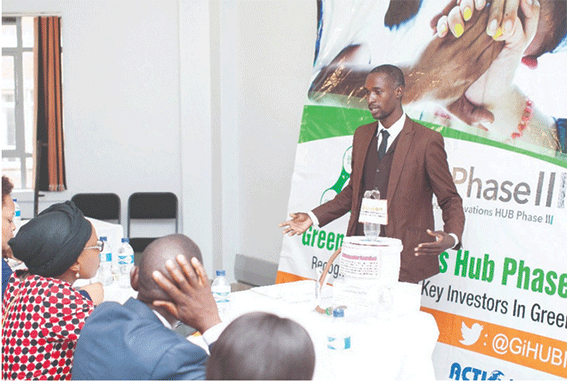
BY THOMAS CHIDAMBA
A BINDURA man is earning a living through breeding flies as animal feed at a time flies are associated with unhygienic practices and condemned for causing diseases such as cholera, typhoid, dysentery and diarrhoea.
Josphat Nyika told NewsDay that he had mastered the art of turning flies into animal feed, which could be a game-changer in terms of the development of stockfeed at a time the country is grappling with the high cost of corn-based stockfeed.
Nyika, who is an agriculture graduate said: “As organic waste decays and decomposes, it produces a lot of greenhouse gases that affect the ozone layer and triggers climate change. On a daily basis, an average of one metric tonne of organic waste is produced at dumpsites. Garbage at dumpsites produce odorous smells that attract flies, making them a health hazard,” Nyika said.
“There are a number of fast-food outlets at the marketplace which used to struggle to eliminate house flies breeding at the dumpsite, just less than 20 metres away from their shops. They at times resorted to using fly traps and pesticides to eliminate flies, but could not do anything to deal with the odorous smell produced by the decaying and decomposing organic waste.
“This has become a breeding hub for diseases such as cholera and typhoid. So this innovation has managed to make use of the organic waste dumped at Chipadze Vegetable Market to produce stockfeed,” he said.
Nyika said he collected waste to feed the flies, adding that the project was a sigh of relief to nearby food outlets which used to struggle with flies emanating from the dumpsites.
On average, he collects 500kg of organic waste daily to feed black soldier fly larvae. The flies are fed to pigs, fish and poultry.
- Chamisa under fire over US$120K donation
- Mavhunga puts DeMbare into Chibuku quarterfinals
- Pension funds bet on Cabora Bassa oilfields
- Councils defy govt fire tender directive
Keep Reading
Nyika said breeding flies had helped in creating a friendly environment.
“As the waste will not be left to decompose on its own, the amount of greenhouse gasses emitted into the environment is reduced. Also, the environmental nuisance caused by the decaying organic waste is minimised,” he said.
He said the breeding of flies complemented government’s clean-up campaign.
“The innovation to use the organic waste to feed the black soldier fly larvae to produce stockfeed comes at a time the government has launched the national clean-up campaign to be held once every month. The government through the Environmental Management Agency is calling upon young people to come up with innovations that green the communities, thereby creating green jobs,” he said.
“The project site is away from residential areas and is surrounded by trees which will clean the air from the substrate tanks making it safe for animals and human beings,” he said.
He said black soldier fly larvae were rich in protein.
“The black soldier fly larvae and pupae will be harvested, dried and protein-rich stockfeed will be made to feed fish, poultry and swine. Poultry and fish can also be fed from live black soldier fly pupae or larvae,” he said.
With support from both government and the private sector, Nyika said the programme of breeding flies could create employment and end animal feed challenges. “We aim to train small-scale poultry farmers on the use of black solder fly larva to feed poultry and help them set up black soldier fly breeding facilities to alleviate stockfeed challenges,” he said.
Follow Thomas on Twitter @chidambathomas











